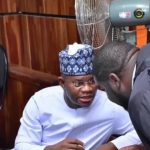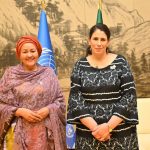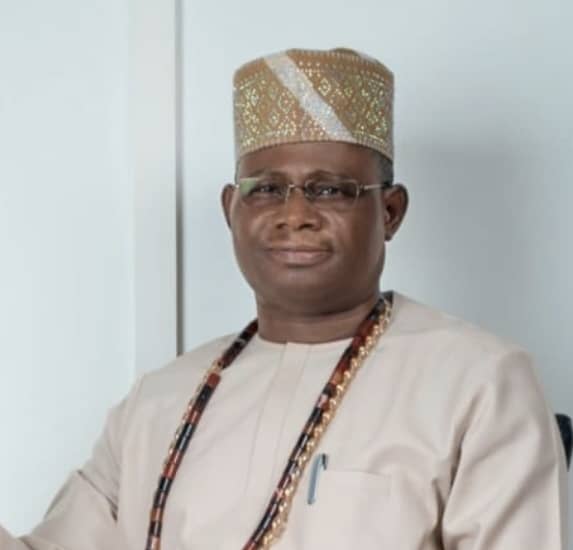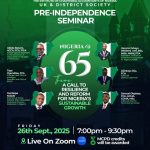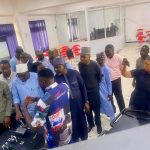Nigeria’s Costly Education Gamble
By Isiaq Ajibola
“A barn is only full when the seed is sown.” But why sow seeds when you can just recycle last year’s rotten harvest and hand it over to a child? After all, who needs fresh learning tools when torn, scribbled textbooks and fragile tablets will now be our educational foundation.
This is the frustration with many people who have deep insights into the education system in Nigeria today. As the 2025/2026 school year begins, some state governments are pulling off a masterstroke which we don’t know yet if it is a national policy on education.
Firstly, pupils in public schools are asked to reuse textbooks, passed from their senior siblings.
Benue, Edo, Imo, Anambra, and Ondo States have all announced policies encouraging reuse, often justified as cost-saving measures for parents.
In a related development, UBEC, the body responsible for shaping up basic education architecture in Nigeria, will procure and distribute 47 million laptops and tablets nationwide to students as part of the new education policy.
Educationist are in doubt if this is a good digital policy for the country when children learning begins with a book they could not call their own.
I remember our first schoolbook. They were crispy with nice smell of fresh pages and the thrill of writing our name on it was incredible. That was our passport to knowledge.
But today, the Nigerian child is expected to feel the same while flipping through a hand-me-down textbook missing three chapters and doodled all over with “A is for apple” in blue biro.
Science is even less forgiving. UNESCO and the World Bank keep reminding us that pupils learn and retain better with printed books.
Sweden, one of the most developed countries in the world with fast internet and reliable power, had spent billions on tablets, but their research showed that children’s assimilation and comprehension fell drastically when learning from screens. In response, Sweden reversed course. “Sweden’s students need more textbooks,” declared Lotta Edholm, the country’s Minister for Schools.
This was after the Swedish government observed a decline in some basic skills (reading comprehension, handwriting) among students over time.
Their research shows that early over-reliance on tablets/digital tools has contributed to students performing worse in those basic skills. They found out that physical textbooks, quiet reading, handwriting practice are the remedies.
The policy shift includes putting less emphasis on tablets in early education, and more emphasis on printed books, reading, handwriting, teacher-led instruction instead of having children rely heavily on screens.
Between 2022 and 2025, Sweden is investing about €104 million (over ₦180 billion) to bring back printed textbooks.
If a nation with world-class internet and power supply admits its mistake and reinvests in books, what excuse does Nigeria have in this regard.
The irony is harder to swallow when Nigerian parents who happily spend fortunes on aso-ebi for weddings, on birthday parties, and on new uniforms for private schools are now encouraged to believe government is saving for them if their children use second-hand textbooks.
Some teachers can see through the misnomer. A headmistress in Adamawa was reported to have said, “Give me chalk, a blackboard, and enough new textbooks, and I will teach wonders. Give me tablets without light or training, and I am helpless.”
Statistics don’t lie either. UNICEF says only 45% of primary schools in Nigeria have electricity. In Ethiopia, where a similar digital transformation was attempted, tablets were broken or stolen within two years. In Kenya, laptops never even made it out of warehouses.
But these measures threaten to suffocate the book industry where a new curriculum should mean fresh opportunities for publishers,writers, printers, distributors, and booksellers. Instead, the reuse policy may strangle the industry, placing over 100,000 jobs in the publishing ecosystem at risk.
No one is against digital innovation. But balance is common sense. Nigeria’s textbook-to-pupil ratio is still 1:4 in many schools. Four children huddle over one battered book, and instead of fixing that, we rush to making pronoucements about reuse books and hand out tablets to classrooms without adequate preparation. Education should be not a hand-me-down rag . It is the seed of our national progress. Denying children their own new, quality textbooks while dangling fragile gadgets in their faces is not reform. It is regression dressed in glamour. If we want barns full of knowledge tomorrow, we must sow the right seeds today.
— Isiaq Ajibola,lives in Abuja. He is
Former Managing Director, Daily Trust Newspaper.


